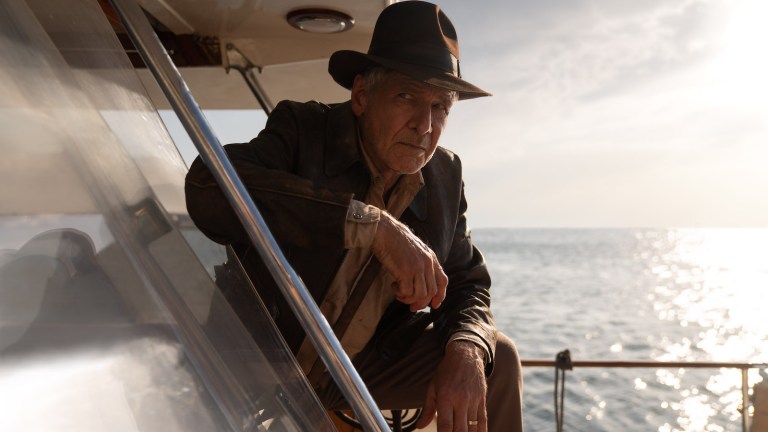Indiana Jones 5 Director Defends the Movie’s Divisive Ending
For director James Mangold, the unexpected ending to Indiana Jones and the Dial of Destiny wasn't just for shock value.

This post contains spoilers for Indiana Jones and the Dial of Destiny
Indiana Jones gets punched in the face. That’s how director James Mangold decided to end Indiana Jones and the Dial of Destiny, the fifth and final movie about the adventurous archaeologist. For some, the ending is the ultimate sign of disrespect, in which a broken Indy begs to be left in the past with Archimedes, only to get knocked out and dragged to the present by his goddaughter Helena (Phoebe Waller-Bridge). Others found it to be a bit of a stretch, taking Dr. Jones out of his element via time travel, and throwing him into an unfamiliar past with the aid of another wild MacGuffin.
But for Mangold, the ending was the only way to close out the final movie in a franchise that began in 1981. Giving Indy access to a time-travel device and then letting him actually see the eras he studied flowed naturally from both a thematic and character perspective.
“I wanted Indy to be confronted with something that would not only challenge his notions of belief, but also tempt him in a way,” Mangold explained to The Hollywood Reporter. “Life in the modern world had gotten disillusioning enough that the idea of actually living in history might be a temptation for him.”
Indeed, much of Dial of Destiny finds Indy in a world that seems to have left him behind. After an extended opening sequence set in World War II, featuring a digitally de-aged Harrison Ford, Indy is often one step behind other people in the movie’s present of 1969, discovering too late Helena’s deception and the U.S. government’s work with Nazi scientist Voller (Mads Mikkelsen). It’s not until he’s actually investigating artifacts that Jones gets back on solid footing.
For those reasons, Mangold — who co-wrote the script with Jez Butterworth, John-Henry Butterworth, and David Koepp — sees the film as less a time travel story and more an exploration of the concept of time itself. “It’s about time, it’s about getting older and it’s about the world changing around you,” he argued. “And as long as there’s been Indiana Jones movies, the power of the relic has always had some kind of dialogue with the theme of the movie itself. So it was no shocker.”
In the same way, Helena’s decision to punch out Indy at the end of the movie wasn’t about shocking audiences or putting her over Jones to set up a new hero. Rather, it came from a real need she had as a character.
“She loves him and she needs a father. She needs him,” Mangold said of Helena’s actions. “Her father died when she was young and the godfather never showed. And so this movie became a chance for this particular father to prove himself again, and in his own way, climb out of the grief he felt about his own loss.”
Will this explanation help the movie crawl out of its current box office slump? That part’s unclear, but hopefully it’s enough to convince fans that Mangold came to Dial of Destiny to respect Indy’s past, not to bury him in it.
